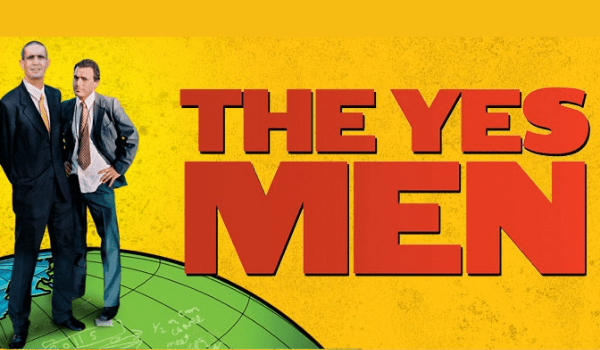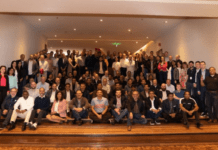It is still debatable whether or not such individuals are significant to an organisation, but sycophants are found in every organisation and in every field of work.
Team members suck up to their bosses making the latter feel good about themselves. While the subordinates manage to find a place in the good books of the decision makers, the supervisors’ positions are never threatened.
As Ravi Mishra, senior vice president, HR, global epoxy business, Aditya Birla Group, says “Most managers like people in the team who are faithful to them rather than the organisation.”
Mishra calls it a ‘Do-Mo theory’ — donkeys and monkeys — who always dominate an organisation. Managers always feel safe with the donkeys, as they don’t challenge the status quo. Donkeys will always be there and never leave the company.
On the other hand, the monkeys are the people who may not be doing a great job, but keep a tab on everyone else. Therefore, the managers feel the need to rate them well, fearing they will complain to the higher authorities, if they don’t.
While the good performers get a lot of opportunities elsewhere, the Do-Mo are well aware that they may not get jobs in other organisations. Therefore, they make sure they please their bosses.
“It’s a ‘Do-Mo theory’ — donkeys and monkeys — who always dominate an organisation. Managers always feel safe with the donkeys, as they don’t challenge the status quo. Donkeys will always be there and never leave the company.”
Ravi Mishra, senior vice president, HR, global epoxy business, Aditya Birla Group
Agreed, bootlicking is rampant when people are working out of physical offices, but one does wonder how it manages to stay afloat during the work-from-home arrangement.
Earlier, it was easy to spot flatterers — people who said ‘yes’ to everything the boss uttered, never questioned the boss’ decisions, and were ready to sacrifice their personal life to please the boss and even become the boss’ trusted whisperer. It was possible to watch out for and judge such people in pre-COVID times.
Now, this has become quite tough. Virtual meetings do not give enough room to such people to suck up efficiently, because they are timed and monitored. In the last one year, to reach out to their employees— working from all kinds of places, remote places, metros and even foreign locations — organisations have developed several communication channels.
Does that imply that the pandemic and the work-from-home model have impacted sycophancy in both good ways and bad?
People seem to be divided on this.
“We have moved through the pandemic to an environment of outcome-based performance rather than focusing on the process. Therefore, if people are not directly adding value, chances are that their survival is going to be difficult. So, mere sycophancy will not help people sail through now.”
Unmesh Pawar, advisor, KPMG
One argument is that in the post pandemic era, organisations have been moving to an outcome-oriented performance system now which completely discounts the amount of time spent on the work, and it’s the completion of project or work that matters. That alters the basic principle of offline sycophancy in a big way because now nobody can prove his or her worth by putting in more than their assigned hours without any significant output.
Unmesh Pawar, advisor, KPMG, enunciates, “We have moved through the pandemic to an environment of outcome-based performance rather than focusing on the process. Therefore, if people are not directly adding value, chances are that their survival is going to be difficult. So, mere sycophancy will not help people sail through now.”
On the other hand there is a counter argument that flattery has got a new lease of life in the remote working environment.
“Flattery is well protected now. In the office, one could spot these people sucking up to their bosses. For instance, they were the ones who spent more time in the boss’ cubicle. In many cases, the bosses themselves ended up talking to these people more than the others. In a WFH model, however, one cannot spot such behaviour easily. Also, in the office, one could gauge how productive a person was. With remote working, it is not possible to find out who the boss is giving a good feedback about,” Mishra says.
“Life is difficult for sycophants for sure, but people do evolve and find newer ways to continue. The smarter ones are leveraging technology for their cause. There have been cases where people who are not supposed to be part of a video call still manage to barge in. In all likelihood, they may be planted in these meetings by managers to extract certain information.”
Anurag Verma, VP, HR, Uniphore
It’s also the fear psychosis is at play now, because job losses have been on the rise and to save their own, people try to impress their bosses.
“These days, with many organisations considering cutting down manpower, such people are even more keen to flatter their bosses,” Mishra opines.
In fact, work from home or work from office, the issue of skill incompetency has always persisted. Incompetent employees do not oppose a manager’s flawed reports, because they are not competent to speak up. It’s a ‘you scratch my back and I’ll scratch yours’. When a crisis crops up or restructuring happens, the bootlickers are often in the safe zone.
“When the need to please is strong, it plays out from both sides – supervisors and subordinates,” Pawar comments.
Insecure individuals, whether subordinates or supervisors, embrace sycophancy to survive and succeed.
“If one feels the need to please, one will refrain from providing feedback to team members out of fear that they will end up disliking one for doing so,” he explains.
However, it’s not always a bootlicker’s day. The flaws of sycophancy come to light, when it’s time for rewards and recognition.
If an organisation has a robust rewards and recognition system, a good performer will outdo the bootlickers, and that’s when such managers or leaders lose face because they can’t live up to their promise in return.
For some flattering their bosses during remote working could have become easier and for some it may have been difficult, but there is also another side of the story, where bootlickers have found innovative ways to keep the practice afloat.
Even sycophants are evolving with each passing day. With this new setup they may have suffered an initial setback, but they have come up with innovative ways to combat the same.
Anurag Verma, VP, HR, Uniphore, says, “Life is difficult for them for sure, but people do evolve and find newer ways to continue. The smarter ones are leveraging technology for their cause. There have been cases where people who are not supposed to be part of a video call still manage to barge in. In all likelihood, they may be planted in these meetings by managers to extract certain information.”
Verma also reveals that initially, these people were in fact connecting with everyone on a humanitarian level, trying to understand how they were. However, over a period of time, they got a little too over-communicative. The thing about the virtual medium is that one cannot indulge in it openly because of the transparency.
Their regular sources are non-existent in the virtual medium of work. For instance, there may not be a pantry guy giving them tip-offs. So now, these sycophants have put in more effort to find out what extra they can do to please their superiors.
“The pandemic has definitely made things quite tough for them, but then what good are human beings if they cannot evolve and adapt to changes?” Verma quips.
All said and done, such practices can be counter-intuitive or counter-productive to the organisations’ performance.
These are times when one doesn’t need yes men. One needs someone who can quickly iterate and do things smoothly,” Pawar concludes.
Value our content... contribute towards our growth. Even a small contribution a month would be of great help for us.
Since eight years, we have been serving the industry through daily news and stories. Our content is free for all and we plan to keep it that way.
Support HRKatha. Pay Here (All it takes is a minute)




































